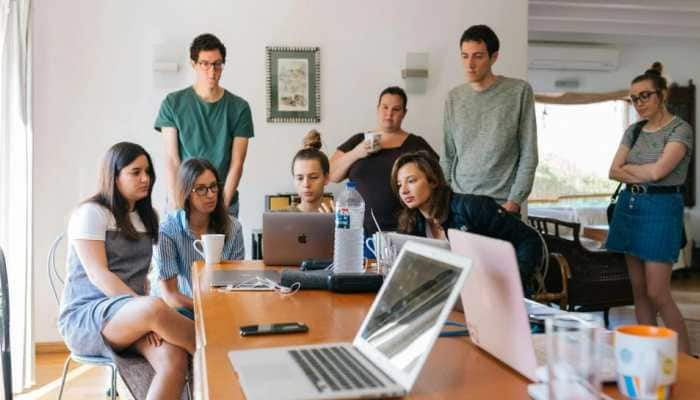Indian woman designs device to detect newborn hearing loss
Indian designer and woman entrepreneur Neeti Kailas has designed a non-invasive, portable and easy-to-use device that detects hearing loss in newborns.
Trending Photos
)
Zee Media Bureau
Kolkata: Indian designer and woman entrepreneur Neeti Kailas has designed a non-invasive, portable and easy-to-use device that detects hearing loss in newborns.
The Bangalore-based Kailas, who developed the mass-screening tool along with her husband, has bagged the 2014 Rolex Award for Enterprise for her work.
Every year an estimated 100,000 hearing-impaired babies are born in India but there is no routine screening countrywide to detect the condition.
Kailas, director and co-founder, Sohum Innovation Lab, said the goal was “to prevent late detection of hearing loss”.
The 29-year-old, who founded the company with her engineer husband Nitin Sisodia said that the battery-powered device works on the science of measuring auditory brain-stem response (ABR) that taps into ongoing electrical activity inside the brain (when stimulated) via electrodes placed on the scalp.
“It is like a headband which can be strapped on to the baby's head and it reads responses from the brain's auditory system when stimulated. If the brain doesn't respond to these stimuli, then the child can't hear. It is non-invasive and safe to use,” Kailas was quoted as saying to IANS.
“If we can get to know (of the affliction) within the first six months after birth, then speech loss can be prevented by addressing the issue early,” she said.
As newborn wards are noisy, she said her device is designed to work in noisy settings by turning out ambience noise, which is cheaper than any other hearing-loss detecting devices in the market. She also said that the products available in the Indian market are manufactured abroad and are not designed to filter out the background noises.
“Other ABR-centric tools available in India are not indigenous products and therefore range from $10,000-$29,OOO. Our design would be one-fifth the cost of the foreign ones,” she said.
The device is being designed in a simple manner to enable ease of use by public health workers and doctors in resource deficient settings, particularly in rural areas.
The prize money - 50,000 Swiss francs (Rs.33.6 lakh) from Rolex will be used for clinical trials later this year.
Kailas hopes to launch the device, which is in the prototype stage, in 2014.
Kailas has partnered with New Delhi's AIIMS and Bangalore's St John's Medical College and Hospital to begin with the work.
(With Agency Inputs)







)
)
)
)
)
)
)
)
)
)
